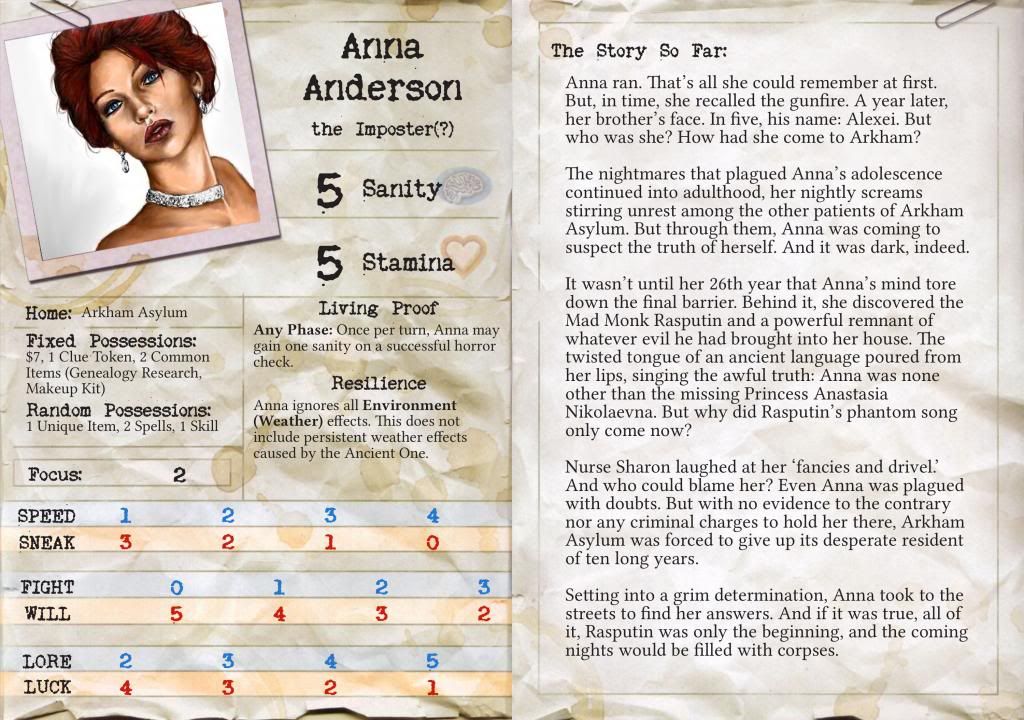Alright, a couple things stand out to me.
1) Never, under ANY conditions, leave any stat at 2. Edmund's life sounds fairly depressing, and it doesn't ever appear to be improving nor is there any easy way out, but even with all that misfortune you cannot justify a Luck track of 2/1/0/0. For any stat, 3 is the bare minimum in order for the investigator to be at least functional in that area. Part of how Arkham's mechanics work is that advancing one area of your character means sacrificing another area fairly so as not to create imbalance. When you have a track with two 0's on it, there is no trade off in Luck between having 3 or 4 Lore, so 4 Lore is always automatically the answer. In fact, you wouldn't ever bother trying to raise Luck even if the game's current setting encourages it, mostly because the value never gets to a point where it's even scraping the surface.
TLDR: Minimum for any stat is 3.
2) I do very much appreciate how much story went into crafting this character, and as a result I won't recommend removing the Silver Key item since it has so much importance to his situation, but unfortunately your mechanics and stat alignments are a little too heavily lopsided. Your character has a whopping 5 Speed and 6 Sneak. That's quite a lot to give one character on it's own, but that's not really the problem here. The problem is not only did you give him practically perfect stats for evading and running into gates, you also gave him a Silver Key in case of emergencies or bad rolls, which gives him too dominating a stance on gate running and evading monsters. Since the Silver Key is clearly a very important element here, you may want to consider toning down his Speed and/or Sneak in order to at least make playing him more interesting.
3) I think your character can benefit from having more random possessions. Part of what makes Arkham interesting is that the same character won't necessarily play the same every game since starting items change frequently. Your character will always start every game with a ton of money (which, based on his background doesn't actually make enough sense), a ton of clue tokens and a Silver Key plus a Sheldon Gang Membership. Also, he will get 2 random items and the skill doesn't actually matter since it won't change how he is played. Take away some funds from this guy and put them into at least another random common.
Small things:
-Why does he get Lure Monster when passing his story, none of the dialogue or context there suggests monsters in the slightest.
-Why can he gain clue tokens from cutpurse? The ability sounds like one where you steal money, not information. Not to mention, gaining free clues on that ability is incredibly strong on a perfect gate runner.
-The way he's been described doesn't make me feel that he's a 6 sanity character...
-I know it seems right, especially since I see it on most custom child characters, but I don't really think it's necessary to give him the Minor ability.









